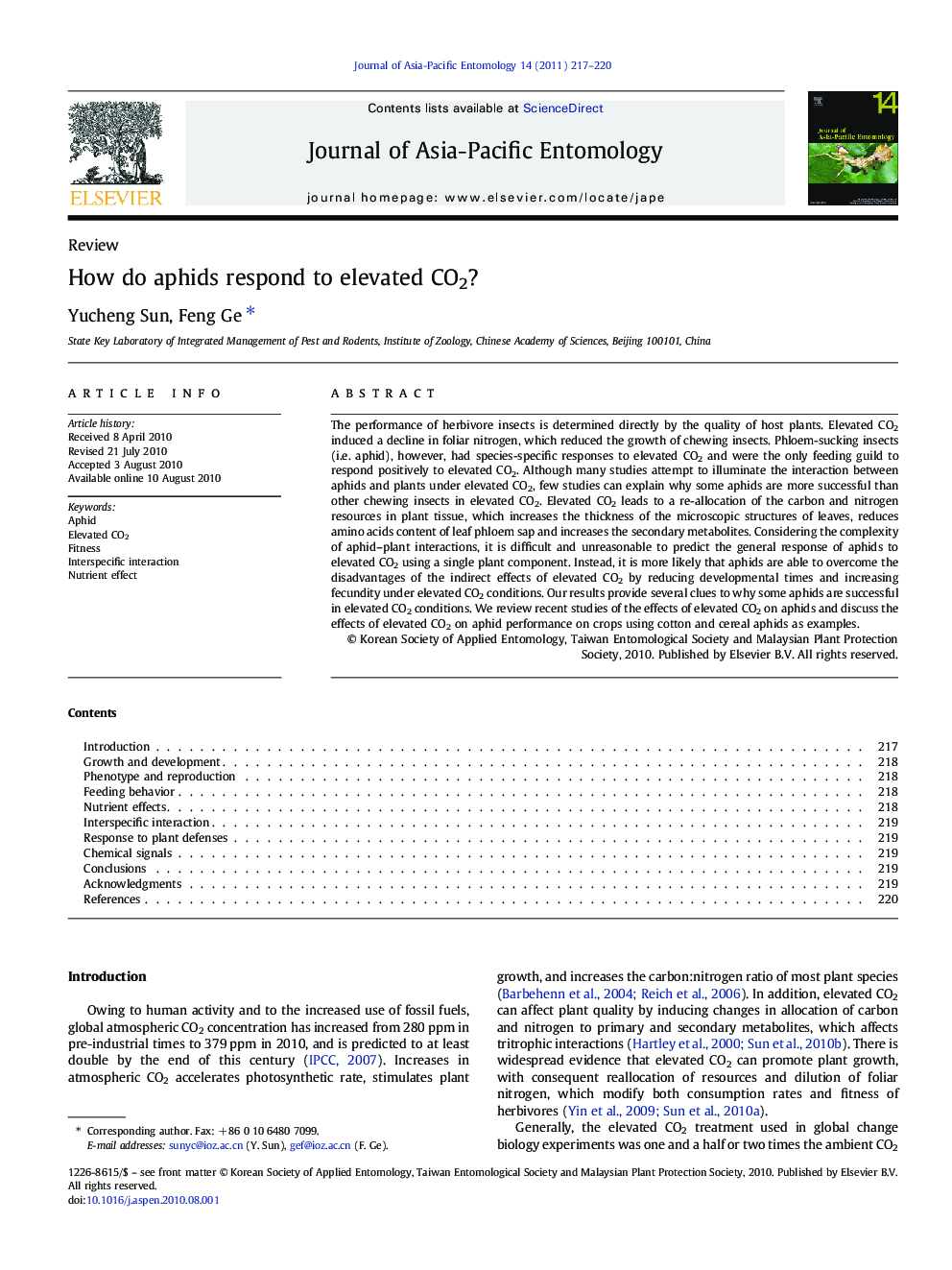| کد مقاله | کد نشریه | سال انتشار | مقاله انگلیسی | نسخه تمام متن |
|---|---|---|---|---|
| 4524919 | 1323598 | 2011 | 4 صفحه PDF | دانلود رایگان |

The performance of herbivore insects is determined directly by the quality of host plants. Elevated CO2 induced a decline in foliar nitrogen, which reduced the growth of chewing insects. Phloem-sucking insects (i.e. aphid), however, had species-specific responses to elevated CO2 and were the only feeding guild to respond positively to elevated CO2. Although many studies attempt to illuminate the interaction between aphids and plants under elevated CO2, few studies can explain why some aphids are more successful than other chewing insects in elevated CO2. Elevated CO2 leads to a re-allocation of the carbon and nitrogen resources in plant tissue, which increases the thickness of the microscopic structures of leaves, reduces amino acids content of leaf phloem sap and increases the secondary metabolites. Considering the complexity of aphid–plant interactions, it is difficult and unreasonable to predict the general response of aphids to elevated CO2 using a single plant component. Instead, it is more likely that aphids are able to overcome the disadvantages of the indirect effects of elevated CO2 by reducing developmental times and increasing fecundity under elevated CO2 conditions. Our results provide several clues to why some aphids are successful in elevated CO2 conditions. We review recent studies of the effects of elevated CO2 on aphids and discuss the effects of elevated CO2 on aphid performance on crops using cotton and cereal aphids as examples.
Journal: Journal of Asia-Pacific Entomology - Volume 14, Issue 2, June 2011, Pages 217–220